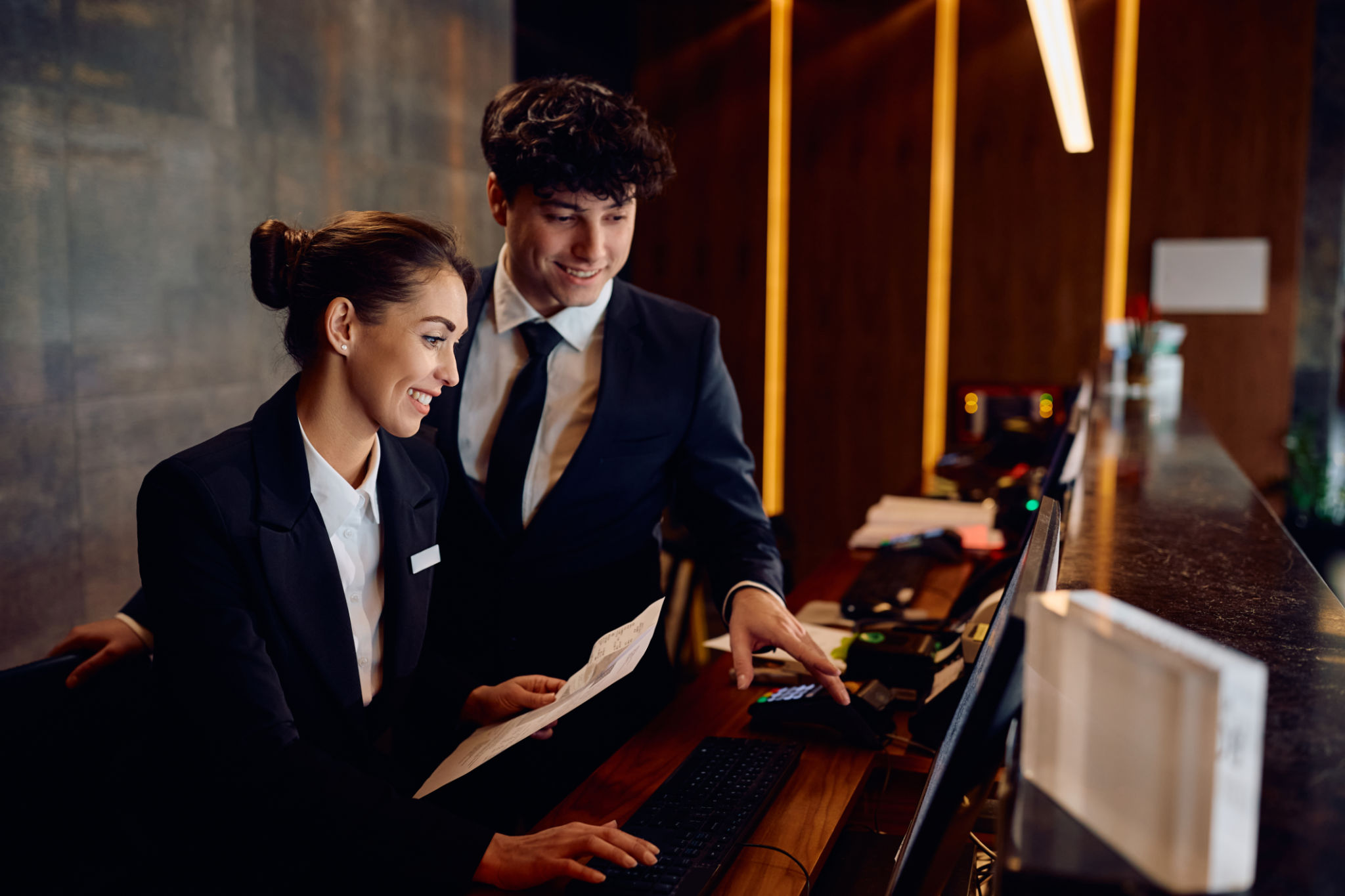Streamlining Hospitality Services with AI-Powered IVAs
Revolutionizing Hospitality with AI-Powered IVAs
The hospitality industry is constantly evolving, striving to provide exceptional guest experiences while optimizing operational efficiency. One of the latest advancements propelling this sector forward is the integration of AI-powered Intelligent Virtual Assistants (IVAs). These sophisticated systems are transforming how hotels and resorts manage guest interactions, streamline services, and enhance overall customer satisfaction.
AI-powered IVAs are designed to mimic human interaction, offering guests a seamless experience from booking to checkout. By utilizing natural language processing and machine learning, these virtual assistants can understand and respond to a wide range of queries, making them an invaluable tool for the hospitality industry. The result is a more personalized and efficient service, which can significantly boost guest satisfaction and loyalty.

Enhancing Guest Interactions
One of the primary benefits of AI-powered IVAs is their ability to enhance guest interactions. These virtual assistants can handle a multitude of tasks, from answering common questions about hotel amenities to managing reservations and providing personalized recommendations. By automating these processes, staff members can focus on more complex tasks that require a human touch, such as addressing unique guest needs or handling in-person interactions.
Moreover, AI-powered IVAs are available 24/7, ensuring that guests receive immediate assistance regardless of the time. This round-the-clock service capability is particularly advantageous for international travelers who may arrive at odd hours or have different time zone preferences.
Improving Operational Efficiency
Beyond enhancing guest interactions, AI-powered IVAs significantly improve operational efficiency. By automating routine tasks such as room service orders, maintenance requests, and check-in/check-out procedures, these systems reduce the workload on hotel staff. This efficiency not only saves time but also reduces the likelihood of human error, leading to smoother operations and better guest experiences.

Furthermore, AI-powered IVAs can analyze data from guest interactions to identify patterns and trends. This analytical capability allows hospitality businesses to make informed decisions about staffing, resource allocation, and service improvements, ultimately driving operational excellence.
Personalizing the Guest Experience
Personalization is a key factor in creating memorable guest experiences. AI-powered IVAs excel in this area by using data-driven insights to tailor interactions and recommendations to individual preferences. Whether it's suggesting a room upgrade based on past stays or offering dining options that align with dietary restrictions, these virtual assistants can create a truly customized experience for each guest.
By understanding guest preferences and behavior, AI-powered IVAs also help hotels anticipate needs and proactively address them. This level of personalization not only enhances guest satisfaction but also encourages repeat visits and brand loyalty.

Overcoming Implementation Challenges
While the benefits of AI-powered IVAs are clear, implementing these systems in the hospitality industry does come with challenges. Concerns about data privacy and security are paramount, as these virtual assistants handle sensitive guest information. It's crucial for hotels to ensure robust security measures are in place to protect this data.
Additionally, integrating AI-powered IVAs into existing systems can require significant investment in terms of time and resources. However, by partnering with experienced technology providers and investing in staff training, these hurdles can be overcome to unlock the full potential of AI-powered IVAs.
In conclusion, AI-powered IVAs are revolutionizing the hospitality industry by streamlining services, enhancing guest interactions, and improving operational efficiency. As technology continues to advance, these intelligent systems will undoubtedly play an increasingly vital role in shaping the future of hospitality.
